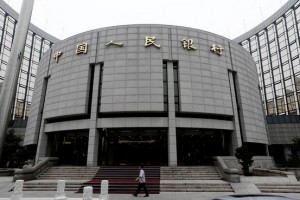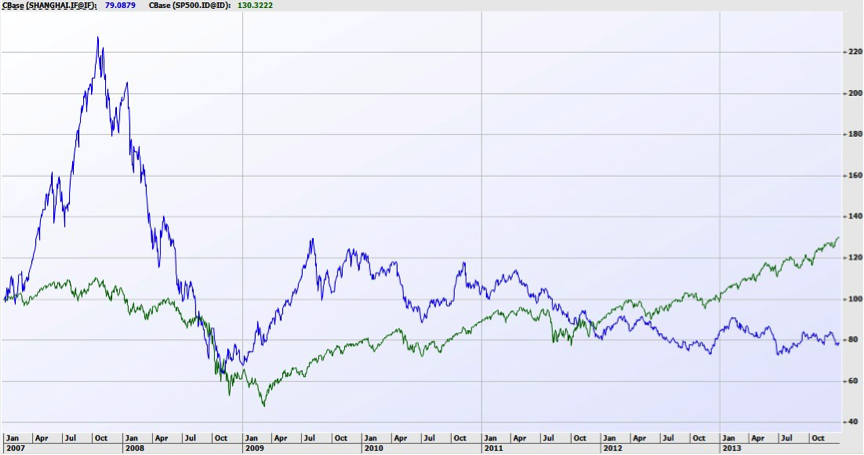
Beijing’s Big Bad Banks, Part I
The prevailing view of many readers is that China’s communist regime will not allow an economic crash landing. Given their record foreign exchange reserves, the government can always throw money at the problem.
The table below compares the US S&P 500 Index with China’s Shanghai Composite Index over the seven years to December 2013. The US market closed 2013 at a record-high – 17 per cent above its pre-GFC high (1,848 v 1,576). Meanwhile, the Shanghai Composite Index closed 2013 at 2,116 points, or 65 per cent below its pre-GFC high of 6,124.
Table 1: S&P 500 Index v Shanghai Composite Index, January 2007 – December 2013
This contrast is illustrated in the below chart.
Chart 1: S&P 500 Index v Shanghai Composite Index, January 2007 – December 2013
Over the past seven years, the negative 21 per cent return from the Shanghai Composite Index is responsible for the dramatic lag in the growth of China’s nominal GDP – which has averaged 9.7 per cent per annum. As nine of the top ten companies in the Shanghai Composite Index are state-owned, stock market returns have significantly lagged economic growth.
China appears to be gearing up for a spike in non-performing loans, and it’s impossible to know the size of the bad loans associated with the so-called shadow-banking sector.
China’s four major listed banks – Agricultural Bank of China, Bank of China, China Construction Bank and ICBC – have a combined market capitalisation of US$637 billion, forecast a 5 per cent growth in earnings per share and an 18 per cent return on equity for FY14, and sell at a forecast 0.9 times book value and 5 times prospective price-earnings ratio.
Meanwhile, the US S&P 500 is up 30 per cent (excluding dividends) over the seven-year period under review, and buyers who were courageous enough to wade in at the March 2009 lows have seen a near tripling of values.


Justin Carroll
:
It is mainly in US Treasuries. China holds about $1.3 trillion worth of them.
xiao fang xu
:
“Given their record foreign exchange reserves, the government can always throw money at the problem.”
This statement need more elaboration;
Is that money in cash?
Is that money in gold?
Is that money in foreign government bonds? — Most likely is this. What is going to happen to price of this bonds if they need to sell them???